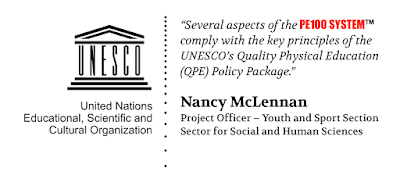About UNESCO and the Sports Programme
UNESCO is the United Nations’ lead agency for Physical Education and Sport (PES).
Assistance and guidance services are provided for governments, NGOs, and experts to debate the evolving challenges of physical education and sport. The organization also assists and advises Member States wishing to elaborate or strengthen their training system in physical education. Furthermore, it offers its expertise in the design and implementation of development programmes in the domain of sport.
And UNESCO provides guidance, advisory services and assessments in related areas such as culture and social development; for example, to promote and develop traditional sport and games.
(Source: http://www.unesco.org/new/en/social-and-human-sciences/themes/physical-education-and-sport/about-physical-education-and-sport/)
Promoting Quality Physical Education Policy
On May 6, 2016, I wrote to UNESCO Sector for Social and Human Sciences to share my initiative to promote a brand of Physical Education that's gamified, inclusive, innovative, child-centred, flexible and customisable, that will revolutionise the instruction, method of teaching, and impact in learning to students. I submitted the rationale of my first project PhysicalEducASEAN along with my website and my blog on PE100 SYSTEM™ ASIA.
On May 9, 2016, a few days after my email, Nancy Mclennan, the Youth and Sports Section Project Officer, responded with a very positive note about my projects. "Several aspects mentioned in the presentation of your projects comply with the key principles of this policy package," she wrote. She was referring the policy package to the diagram below:

"UNESCO, along with partners, have developed a Quality Physical Education (QPE) Policy package to guide Governments to revise national PE policies to be inclusive, flexible and child-centred," she mentioned. The core policy tools developed so far are included below:
- A “how to guide” (Quality Physical Education Guidelines for Policy-Makers) to review and reinforce policy measures, with locally adaptable benchmarks for provision, checklists, good practice examples and a policy matrix (also available in French, Portuguese and Spanish)
- A methodology document which outlines good practice in terms of the process of policy revision (also available in French and Spanish)
- An infographic making the case for public investment in inclusive, child-centred QPE policy (also available in French, Portuguese and Spanish)
I vowed to promote Quality Physical Education Policies in my projects, use the methodology policy and will encourage public investment using the following infographic for PE100 EXTRA™, as UNESCO has encouraged me to do so.
Additionally, this year, a select number of countries (including Fiji, Mexico, Zambia and South Africa) will be actively supported by UNESCO and partners in the revision of their PE policy in line with the Guidelines. They hope these countries will then serve as mentors to inspire other governments to also review and review national policy.
With PE100 SYSTEM and PhysicalEducASEAN projects, Asia, particularly the ASEAN region is not left behind.
For more information about Quality PE Policy Package, please click this link: http://www.unesco.org/new/en/social-and-human-sciences/themes/physical-education-and-sport/policy-project/

No comments:
Post a Comment